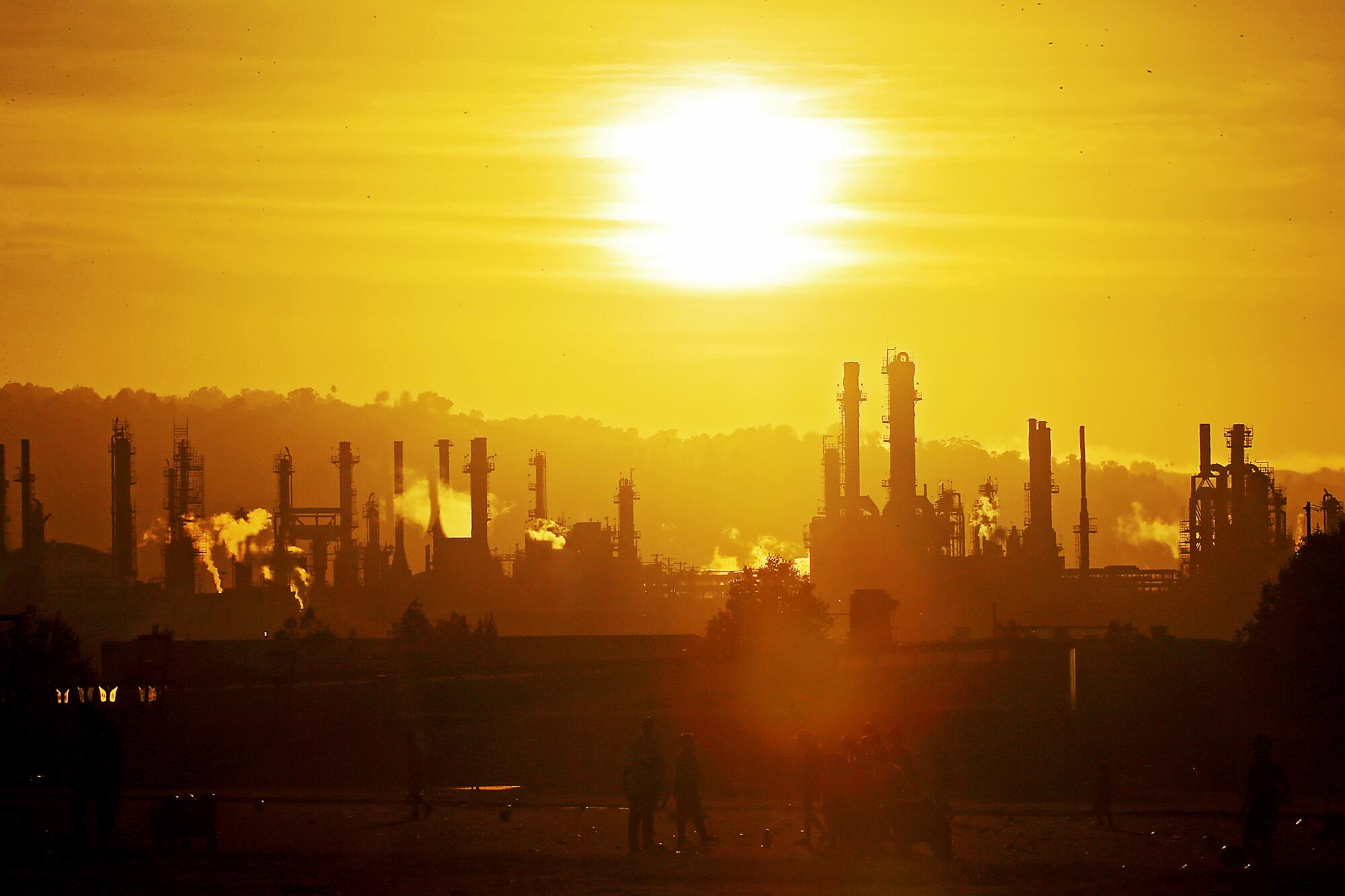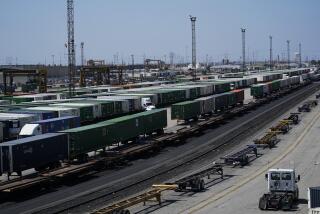
Southern California air regulators have voted to impose millions of dollars in fees on the region’s heaviest polluters, undoing a controversial program that made major sources immune from penalties.
Southern California does not meet federal clean air standards, so under U.S. law its large polluters are required to reduce their emissions by 20%. If they don’t achieve those reductions, they must pay fees comparable to their emissions. The money is meant to be spent on clean air investments in the region.
Aggressive and impactful reporting on climate change, the environment, health and science.
For years, however, the South Coast Air Quality Management District used a controversial accounting rule it enacted in 2011 to shield polluters from having to pay. The rule allowed the agency to forgive the pollution fees if the air district dedicated a dollar-for-dollar match toward emission reduction initiatives.
Over the last decade, the air district could have collected more than $200 million in pollution fees from Southern California’s largest polluters, according to government records obtained by Earthjustice, an environmental law nonprofit headquartered in San Francisco.
Last year, Earthjustice and other environmental groups petitioned the U.S. Environmental Protection Agency to intervene and require the air district to revise its pollution fee program, arguing this loophole has removed the impetus for these facilities to curb their emissions.
“Environmental racism means communities like ours have lived and worked in life-threatening conditions for generations while corporations have evaded accountability,” said Paola Vargas, an organizer for East Yard Communities for Environmental Justice in Long Beach. “These polluter fees are a critical first step toward making sure polluters pay their fair share when the air is unsafe to breathe.”
Toward a more sustainable California
Get Boiling Point, our newsletter exploring climate change, energy and the environment, and become part of the conversation — and the solution.
You may occasionally receive promotional content from the Los Angeles Times.
At Friday’s meeting, air district staff said that if the agency didn’t collect pollution fees, as mandated by federal law, the U.S. EPA would collect the fees and those funds would go into the federal treasury.
The pollution fees will affect about 320 facilities, including oil refineries and landfills.
But critics noted that the fees might also pose a financial burden for regional hospitals, wastewater treatment facilities, power plants and other essential operations that may have to pay them.
The rule “will not improve our air quality in a significant way,” said Brad Bowman, who expressed concern for the fiberglass-manufacturing business where he works. “You will not solve our non-attainment problem and will hurt our already struggling California economy.”
Jane Williams, executive director of California Communities Against Toxics, said the action was long overdue.
“It’s laudable that we will be finally going to be complying with federal law,” she said.
Researchers concluded exposure to nitrogen dioxide emissions alone may contribute to nearly 19,000 premature deaths in the United States each year.









